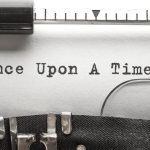Do you ever have those days when you just flit around from one project to the next, feeling the chaos of the busyness in your schedule?
I call those “butterfly days” when I’m bouncing from one project to the next, never landing anywhere for too long.
I never feel productive on those days. I usually end the day feeling stressed and like I didn’t accomplish much. Usually, I have these days when I don’t use my productivity system. They’re a sure sign that I need to get on track.
I hardly ever get writing done on butterfly days. I’m not sure I get much of importance done at all. Because, honestly, how do you focus on writing when you lack focus?
Why You Need Focus to Write
You probably can do some tasks without a lot of focus. For example, I cleaned out my email inbox today. It wasn’t exactly what I would call “deep work.” I also made my daily to-do lists for the week and scheduled some time off on our team’s shared calendar. None of those things required me to think carefully. But writing isn’t the same.
You can’t be flippant with your attention when you’re writing for multiple reasons.
Writing Ain’t Easy
Writing requires you to organize thoughts and turn them into words on paper with some type of structure. You can’t do that while you’re thinking about a bunch of other things or trying to multitask. Writing requires concentration and your brain’s undivided attention. Otherwise, it will probably suck up your time until you give it the focus it needs.
Writing Requires Accuracy
I hate when students text in class. It’s a major pet peeve of mine. The biggest reason is because it means they aren’t paying attention to what I’m saying. There is a ton of research on the fact that we can’t do two things that require attention at once. Sure, you can walk and chew gum, but that’s because both of those tasks are automatic. But you can’t write a text and take notes simultaneously or even write a text and process what your professor is saying.
In the same way, you can’t do something else and write simultaneously. It’s silly to even think about it. I can’t write and walk at the same time. Maybe you can, but I promise I would fall down. I also can’t write and talk to someone simultaneously. If I tried, it would likely take me much longer to do either, and my writing would surely lack flow and contain errors.
Writing Demands Thinking
I don’t need to focus to type. Thanks to my junior high typing class, I can look at a piece of paper and quickly type what is says. But typing isn’t the same as writing.
Writing requires you to actually think and process those thoughts, not just put words on paper. You can’t delve into a topic and explore it without using at least some brain power. If you try, your arguments will likely have as many holes as Swiss cheese.
Writing Requires Style
Keeping a consistent tone, style, and voice in writing often demands focus. It’s not just about putting words on paper. It’s about using those words artfully and in a way that attracts (and keeps) attention.
Writing Needs Editing
Good writing deserves great editing. Even if you can get through a piece of writing without focus (and I clearly don’t think you can), you certainly couldn’t revise it without focused attention. By focusing, writers (or their editors) can identify areas of improvement, refine their arguments, and ensure clarity in their content.

Writing When You Lack Focus
At this point, you’re hopefully relatively convinced that you need at least a medium to high level of focus to write. So, what do you do when you need to write on butterfly days? You have to learn to focus your attention to meet your writing deadline. Here are some ideas for how to do that.
Start Small
When you need to write but you lack focus, don’t sit down and think, “I’m going to write this blog post.” Instead, focus on writing a certain number of words, a paragraph or two, or even for a specific amount of time. Set a tiny, easy-to-accomplish goal, then follow it with another one.
The idea of starting small or focusing briefly is why the Pomodoro technique, which requires you to work in spurts with frequent breaks, is so effective. I often find that I’m more productive when I use it, especially when editing.
Eliminate Distractions
You don’t need any outside help if you’re already having difficulty focusing. Turn off your cell phone ringer. Move to a less distracting environment. Avoid social media. Do whatever you need to do to eliminate distractions, especially those caused by tech.
Just Write
Writing almost always gets me in a flow state. Once I start, the world sort of falls away, and the words start coming. So, a key to focusing on writing is to start writing. I talked more about embracing flow states in this piece on how to write more without spending more time writing. I also talk about how to write when you aren’t motivated to in this piece on how there’s no such thing as writer’s block.
Move Your Body
This tip is one of the first things my writing team mentioned when I asked them how they write when they really don’t want to. The short answer: They don’t. At least not initially. Instead, they take a walk. While they walk, they think about what they need to write. Pretty soon, they’re working through a piece in their head and excited to get back to the computer and get started.
Establish a Routine
No one accomplishes anything by doing it only when they want to or when they feel like it. If you wait for the conditions to be perfect, you’ll never write a word. Instead, establish a writing routine and stick to it. If your brain knows that you sit down and write for an hour at 9 a.m. every day, whether you want to or not, it will transition into writing mode when you sit down at your computer at 9 a.m. Developing a writing habit is the key to writing a lot, regardless of your mood or environment.
The Truth About Focus and Writing
Here’s the truth about writing and focus. There will be days when you don’t want to write. There will be days when you aren’t focused. When you aren’t focused, you’ll use that as an excuse not to write. A hard deadline is the absolute best way to find your focus because it forces you to. On the days when you aren’t focused and you need to write, show yourself some grace and write the best you can. You can always edit it later. And sometimes, it won’t be as bad as you thought.



